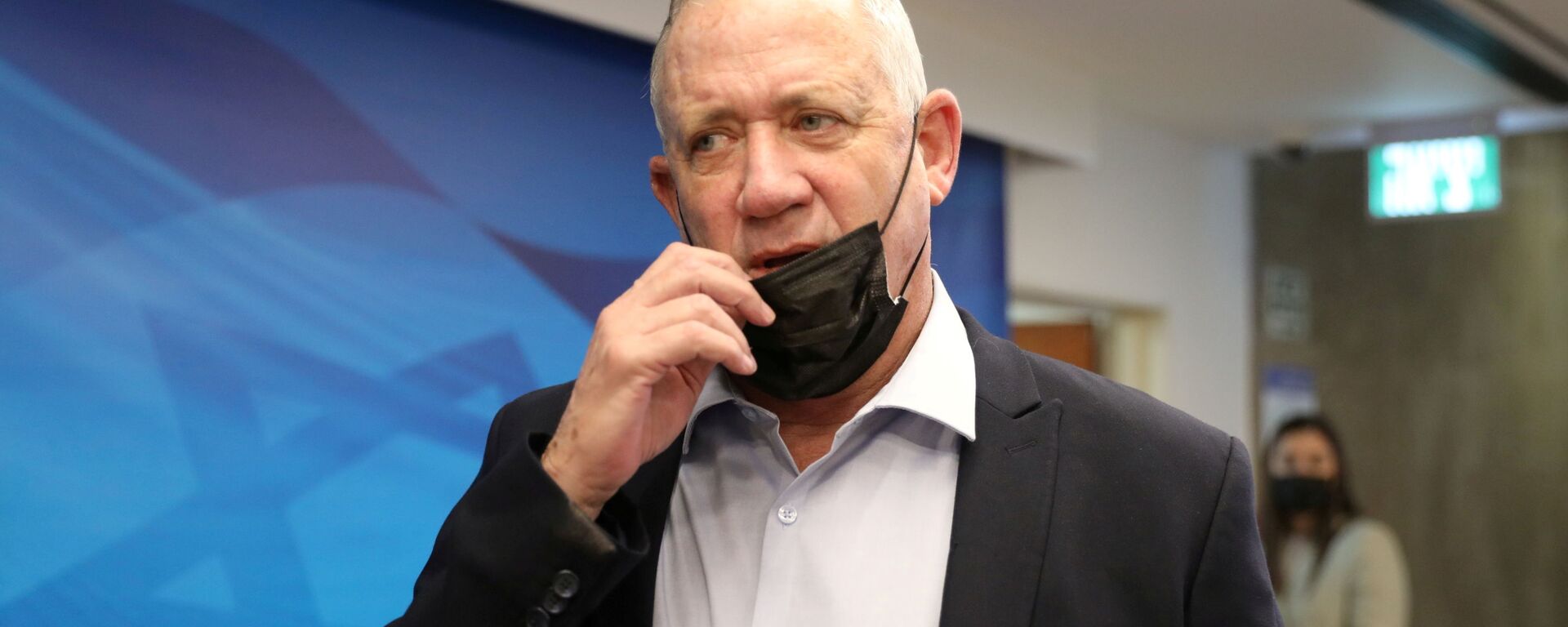https://sputnikglobe.com/20211210/israel-trailblazes-10-country-cyberattack-war-game-to-boost-cooperation-against-hacker-threat--1091410303.html
Israel Trailblazes 10-Country Cyberattack ‘War Game’ to Boost Cooperation Against Hacker Threat
Israel Trailblazes 10-Country Cyberattack ‘War Game’ to Boost Cooperation Against Hacker Threat
Sputnik International
Israel has led the first of its kind 10-day-long simulation of a cyberattack on the world’s financial system.
2021-12-10T09:27+0000
2021-12-10T09:27+0000
2021-12-10T09:27+0000
israel
cyberattack
iran
https://cdn1.img.sputnikglobe.com/img/105979/95/1059799577_0:100:1921:1180_1920x0_80_0_0_9f66b3cbe2055c92b15a704d7d28f649.jpg
Israel has led the first of its kind 10-day-long simulation of a cyberattack on the world’s financial system by “sophisticated” players, reported Reuters. The scenario of the “war game”, led by the Finance Ministry with help from the Foreign Ministry, involved sensitive data being released on the dark web alongside fake news, triggering global financial chaos. The drill, which had been planned over the past year, featured an array of diverse attacks targeting global foreign exchange and bond markets, liquidity and undermining integrity of data and transactions between importers and exporters. According to Israeli government officials, current cyber security is not always strong enough, and the only way to ward off the damage from such threats to banks and financial markets is through global cooperation. ‘Collective Strength’ The drill, called "Collective Strength", included treasury officials from Israel, the United States, the United Kingdom, United Arab Emirates, Austria, Switzerland, Germany, Italy, the Netherlands and Thailand, as well as representatives from the International Monetary Fund, World Bank and Bank of International Settlements. It was originally scheduled to take place at the Dubai World Expo, but the emergence of the Omicron variant of COVID-19 prompted it to be moved to Jerusalem, with officials participating via video conference. The Israeli Finance Ministry’s chief economist, Shira Greenberg, who led the Israeli team, said that the drill was “further evidence of Israel’s global leadership” in financial cyber defense.The narrator of a film shown to the participants as part of the simulation said that “these events are creating havoc in the financial markets… Banks are appealing for emergency liquidity assistance in a multitude of currencies to put a halt to the chaos as counterparties withdraw their funds and limit access to liquidity, leaving the banks in disarray and ruin." Micha Weis, financial cyber manager at the Israeli Finance Ministry, was quoted as saying that attackers are typically “10 steps ahead of the defender.” Uptick in Cyberattacks The cyberattack simulation comes as Israel has faced a surge in ransomware attacks. On Wednesday, Israel’s National Insurance Institute said its website had been hacked, causing it to go offline. What is known as a denial-of-service attack was not said to have been focused on accessing databases or information. The site was back online after around two hours. In October, the National Cyber Directorate issued a general warning to all Israeli businesses to alert them to potential cyber threats after an Israeli hospital - the Hillel Yaffe Medical Center in Hadera - faced a crippling attack, forcing it to shut down its technology network and causing delays in medical care. The Black Shadow hacking group made headlines in October and November 2021 by leaking the personal information of hundreds of thousands of Israelis from the hacked databases of a LGBTQ dating app called "Atraf" and the Machon Mor medical institute, after not being paid the requested ransom. Despite lack of solid evidence, the fact that the group had only targeted Israelis sparked allegations that they are tied to Iran. According to a report by cybersecurity firm Check Point in July, on average, Israeli institutions are targeted by twice as many cyberattacks as those in other countries. The country’s health sector is subjected to an average of 1,443 attacks a week, added the report.
https://sputnikglobe.com/20210623/eu-proposes-joint-cyber-unit-to-strengthen-blocs-response-to-rising-cyberattacks-1083221848.html
https://sputnikglobe.com/20211028/hackers-breach-leak-personal-data-of-israeli-defense-ministry-servicemembers-emails-of-benny-gantz-1090265544.html
israel
iran
Sputnik International
feedback@sputniknews.com
+74956456601
MIA „Rosiya Segodnya“
2021
News
en_EN
Sputnik International
feedback@sputniknews.com
+74956456601
MIA „Rosiya Segodnya“
Sputnik International
feedback@sputniknews.com
+74956456601
MIA „Rosiya Segodnya“
israel cyberattack
Israel Trailblazes 10-Country Cyberattack ‘War Game’ to Boost Cooperation Against Hacker Threat
Amid a lengthy series of cyberattacks against the Jewish State in recent years, a ransomware attack hit the Hillel Yaffe Medical Center in Hadera in October, affecting its computer systems. The attack prompted Israel to issue a broad warning to the economy as a defensive measure.
Israel has led the first of its kind 10-day-long simulation of
a cyberattack on the world’s financial system by “sophisticated” players, reported Reuters.
The scenario of the “war game”, led by the Finance Ministry with help from the Foreign Ministry, involved sensitive data being released on the dark web alongside fake news, triggering global financial chaos.
The drill, which had been planned over the past year, featured an array of diverse attacks targeting global foreign exchange and bond markets, liquidity and undermining integrity of data and transactions between importers and exporters.
According to Israeli government officials, current cyber security is not always strong enough, and the only way to ward off the damage from such threats to banks and financial markets is through global cooperation.
The drill, called "Collective Strength", included treasury officials from Israel, the United States, the United Kingdom, United Arab Emirates, Austria, Switzerland, Germany, Italy, the Netherlands and Thailand, as well as representatives from the International Monetary Fund, World Bank and Bank of International Settlements. It was originally scheduled to take place at the Dubai World Expo, but the emergence of the
Omicron variant of COVID-19 prompted it to be moved to Jerusalem, with officials participating via video conference.
The Israeli Finance Ministry’s chief economist, Shira Greenberg, who led the Israeli team, said that the drill was “further evidence of Israel’s global leadership” in financial cyber defense.
“The unique and groundbreaking exercise held today showed the importance of coordinated global action by governments together with central banks in the face of financial cyber threats,” said Greenberg.
The narrator of a film shown to the participants as part of the simulation said that “these events are creating havoc in the financial markets… Banks are appealing for emergency liquidity assistance in a multitude of currencies to put a halt to the chaos as counterparties withdraw their funds and limit access to liquidity, leaving the banks in disarray and ruin."
Micha Weis, financial cyber manager at the Israeli Finance Ministry, was quoted as saying that attackers are typically “10 steps ahead of the defender.”
The cyberattack simulation comes as Israel has faced a surge in ransomware attacks. On Wednesday, Israel’s National Insurance Institute said its website had been hacked, causing it to go offline. What is known as a denial-of-service attack was not said to have been focused on accessing databases or information. The site was back online after around two hours.
In October, the National Cyber Directorate issued a general warning to all Israeli businesses to alert them to potential cyber threats after an Israeli hospital - the Hillel Yaffe Medical Center in Hadera - faced a crippling attack, forcing it to shut down its technology network and causing delays in medical care.

28 October 2021, 01:53 GMT
The Black Shadow hacking group made headlines in October and November 2021 by
leaking the personal information of hundreds of thousands of Israelis from the hacked databases of a LGBTQ dating app called "Atraf" and the Machon Mor medical institute, after not being paid the requested ransom. Despite lack of solid evidence, the fact that the group had only targeted Israelis sparked allegations that they are tied to Iran.
According to a report by cybersecurity firm
Check Point in July, on average, Israeli institutions are targeted by twice as many cyberattacks as those in other countries. The country’s health sector is subjected to an average of 1,443 attacks a week, added the report.





